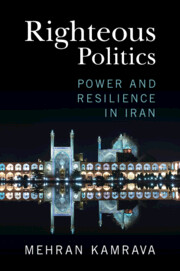Why do voters in single-party regimes express support for the ruling party in such large numbers? Scholars offer three sets of explanations: 1) Support is manipulated by regime leaders or falsified by frightened voters; 2) Support is due to genuine popularity or “performance legitimacy”; 3) The incumbent party holds an extreme incumbency advantage due to voters’ certainty about their candidates’ policy positions or access to state resources. Despite the impressive theoretical development in this literature, these arguments have not been subjected to a research design capable of examining the relative importance of each of these factors. We use a unique survey experiment on nearly 42,000 Vietnamese citizens over three years that reduces the threat of preference falsification and allows us to isolate voter's true preferences as much as possible. While we find some evidence for all three explanations, we find substantial support for incumbency bias. An important subset of Vietnamese voters—those inclined to vote for non-party candidates—sincerely favor the party under conditions of uncertainty about the candidates’ policy stances or experience in the legislature.


